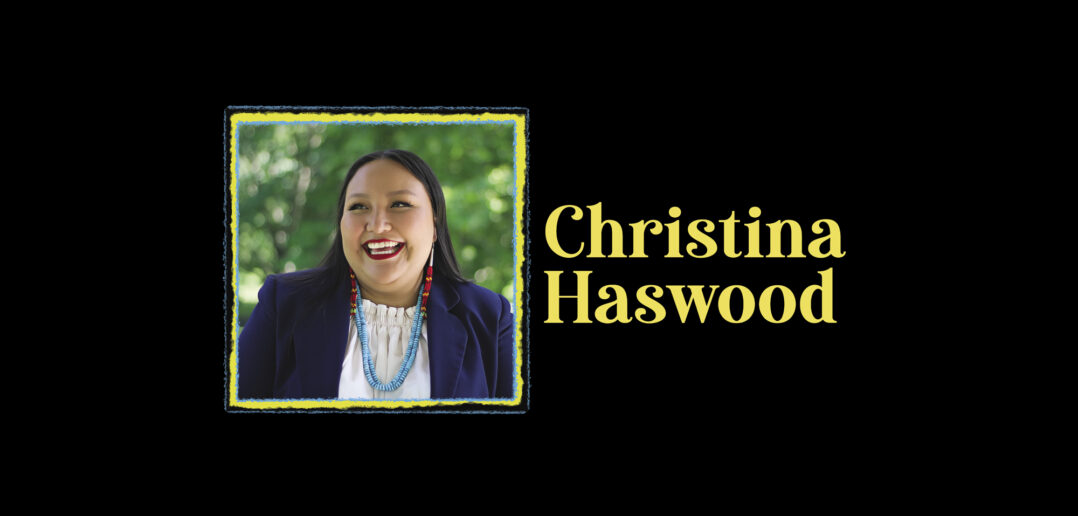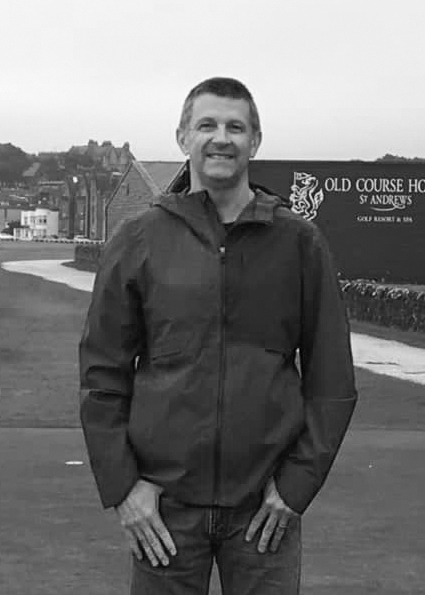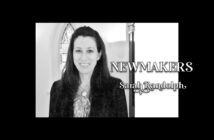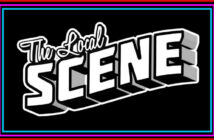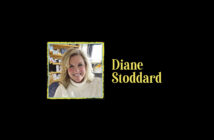| Introduction by | |
| photo courtesy | Christina Haswood |
| OPEN A PDF OF THE ARTICLE |
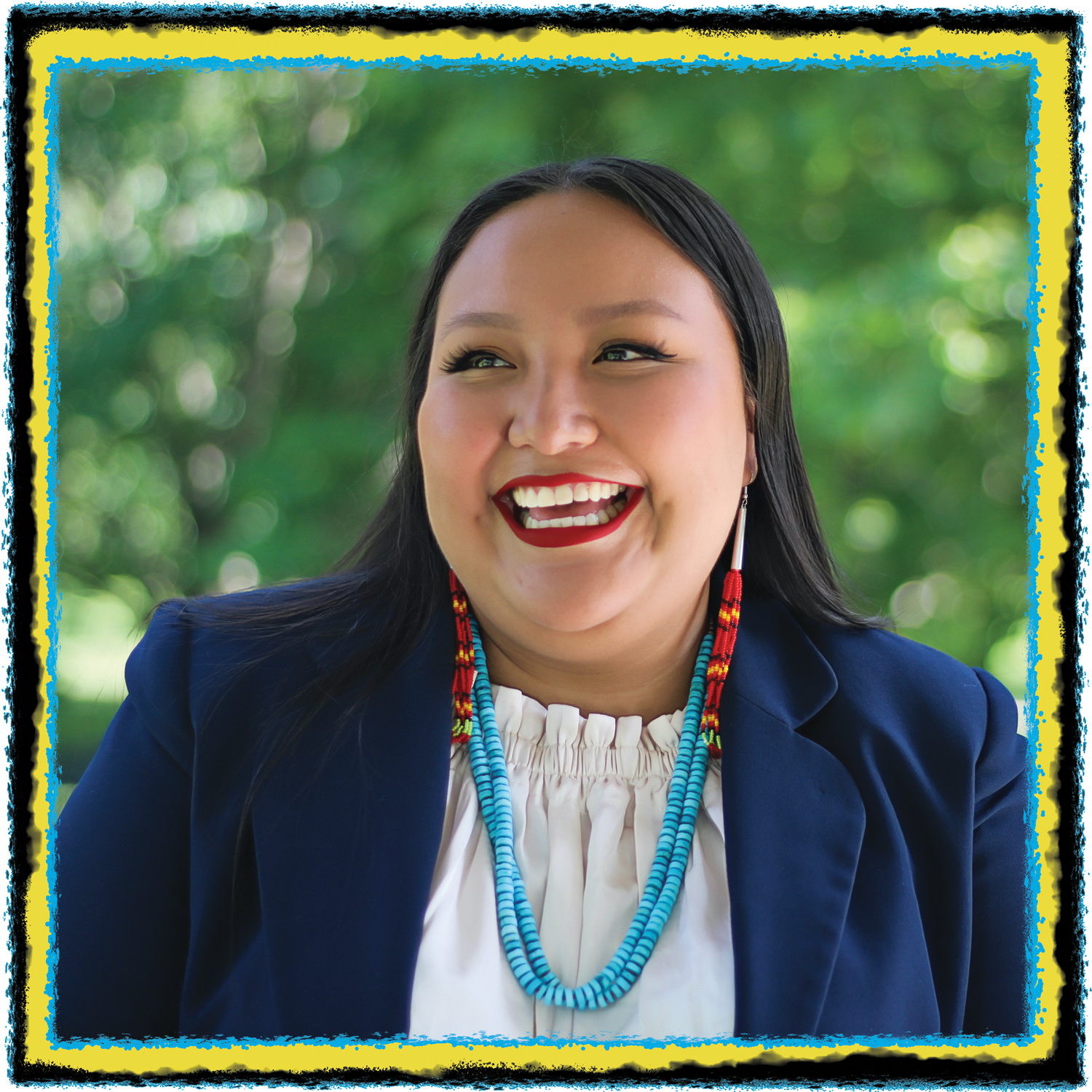
Christina Haswood: Woman of Impact
Christina Haswood, Kansas State House Representative, House District 10
Christina Haswood sees her role as a Kansas State House Representative as not only helping to shape state politics and policy, but also to represent the values of Indigenous Americans. A child of parents from the Navajo Reservation, Haswood operates from the belief that making an impact means working in good faith to be part of a solution to an issue, to leave the community better than when you arrived. Her background in public health has focused on removing or reducing barriers, for her, focusing on those Indigenous people find when leaving the reservation. She’s been a warrior for civil rights for all Indigenous people and works tirelessly in the state legislature to make lives better for her people.
In her own words:
YOUR MENTOR/ROLE MODEL
My mentor is Kansas State Rep. Dr. Ponka-We Victors-Cozad who is the first Native American woman to be elected into the Kansas State Legislature. She recruited me to run for office and has been my mentor ever since. She has taught me the ropes of becoming a politician while still holding our Indigenous values.
My role models would have to be my parents. They came from the Navajo Reservation at a young age and made the tough decision to raise my brother and me off the reservation for a better life and opportunities. They taught me hard work and perseverance which have been key players in my accomplishments in life.
KNOW ABOUT YOU
Perseverance has been a key part of my story. I have failed so many times from classes to not getting a specific internship or job. When I wanted to give up, my parents would lecture me to not or when to redirect to a new path. This life lesson is a great skill in politics where it is hard to get bills passed on the first try though you can not give up the fight.
MAKING AN IMPACT
Making an impact means, that you are a part of the solution to an issue, doing more good than harm, in good faith.
(I made a decision to make an impact), as my background is in public health, it is a profession where we want to improve our communities by reducing barriers. This goal to help people came from me realizing as an urban Indigenous person, I have fewer barriers to those who grew up on a reservation. I always wondered why my school was able to teach me to play the violin in 7th grade when my cousins on the rez did not have that option. This realization really hit me when I was at Haskell Indian Nations University and saw that health issues such as diabetes were still prevalent to us Natives even if we lived on or off the reservation. There are multiple obstacles we all have to overcome as Indigenous peoples and many were the cause of U.S. policy trying to kill us off – genocide. I took an American Indian Movement (AIM) class at Arizona State University and learned about the fight for our civil rights – which is not often taught about or widely known. If you look through U.S. History and American Indian Law, you will see shocking things such as Native Americans did not gain U.S. citizenship until 1924 and the American Indian Religious Freedom Act did not get signed until 1978, just 44 years ago. All of this angered me and I knew I had to get to ‘the table’ to continue advocating for my people.
My earliest recall of what I wanted to be when I grew up was when I was about 5 or 6, I wanted to be a police officer. Then, I learned how to make cupcakes and wanted to be a pastry chef. In high school, I started to appreciate health and medicine then followed that path to public health. I knew I wanted to improve the wellness of my community but did not envision myself to be a policymaker until I met Rep. Dr. Ponka-We Victors-Cozad and saw Congresswoman Sharice Davids and Deb Haaland (now Secretary of the Interior) win their race. Running for office became a possibility and seeing other young folks run and win for office gave me the confidence to know I want to run for office one day but I always thought it would be after I get a PhD or when I was in my 40’s. The opportunity came knocking during my last semester in graduate school just before finals week and I accepted.
LIKE TO SEE CHANGE
I would like to see the healing of our country and community with compassion. Embracing our diversities and taking care of one another, has the power to save lives.

